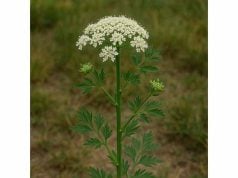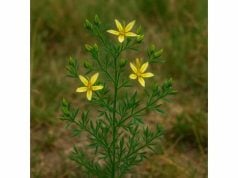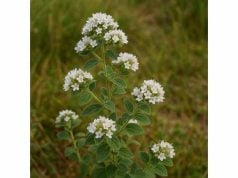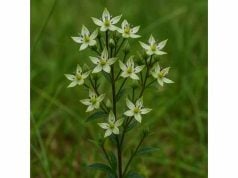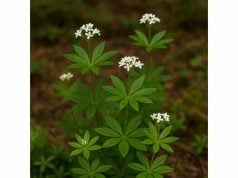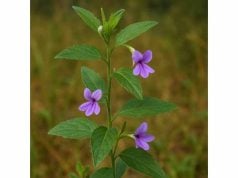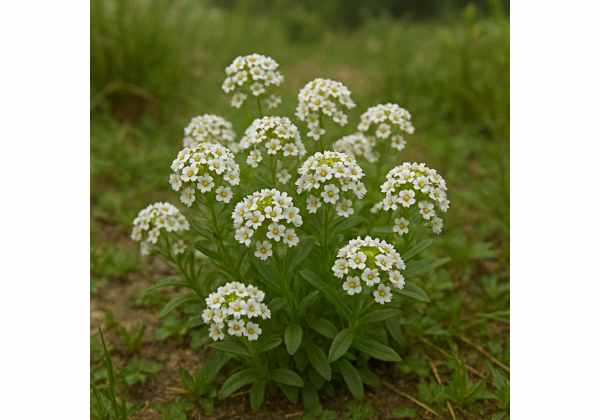
Sweet Alyssum is a delicate flowering herb known for its sweet fragrance, vibrant clusters of tiny blossoms, and impressive range of health-supporting properties. Traditionally celebrated for its antioxidant and anti-inflammatory effects, this herb contains valuable bioactive compounds such as flavonoids, essential oils, and glycosides that are believed to promote skin health, alleviate mild anxiety, and support the immune system. In both culinary and medicinal contexts, Sweet Alyssum has been utilized to enhance well‐being—whether as a soothing tea or as an extract in natural skin care. This comprehensive article explores its botanical profile, phytochemical composition, health benefits, practical uses, research insights, and more.
Table of Contents
- Distinctive Botanical Traits and Species Overview
- Chemical Profile and Bioactive Constituents
- Holistic Health Advantages and Unique Attributes
- Practical Applications and Dosage Recommendations
- Research Insights and Scientific Discoveries
- Frequently Asked Questions
Distinctive Botanical Traits and Species Overview
Sweet Alyssum, botanically known as Lobularia maritima, is a low-growing annual herb belonging to the Brassicaceae family. This charming plant is popular in gardens and landscapes due to its profuse displays of delicate, star-shaped flowers that range in color from pristine white to soft pink or purple. The plant’s compact habit and abundant flowering make it an excellent ground cover and an ornamental accent, particularly in rock gardens or as a border planting.
The morphology of Sweet Alyssum is distinguished by its finely divided, gray-green foliage and its sprawling growth habit. Its small, dainty flowers are arranged in dense clusters that blanket the plant’s surface during the blooming season. This not only creates a visually striking effect but also releases a subtle, sweet fragrance that attracts pollinators such as bees and butterflies. The plant thrives in full sun to partial shade and adapts well to poor soils, making it ideal for xeriscaping and low-maintenance gardening.
Native to the Mediterranean region, Sweet Alyssum has successfully naturalized in many parts of the world due to its hardiness and resilience. It is often found in dry, rocky, or sandy areas where other plants may struggle to survive, a testament to its ability to withstand adverse growing conditions. Its drought tolerance is facilitated by a deep, fibrous root system that efficiently extracts water from the soil, allowing it to sustain growth even in arid climates.
Taxonomically, Sweet Alyssum is placed within the mustard family (Brassicaceae), a diverse group that includes many ornamental and edible species. Its classification is backed by distinct morphological features and genetic markers that set it apart from related genera. Gardeners and botanists alike prize Sweet Alyssum not only for its aesthetic appeal but also for its remarkable adaptability to a range of climates and soil conditions.
Historically, Sweet Alyssum has been cultivated for both decorative and functional purposes. In ancient gardens, it was revered for its charming appearance and was often used to enhance the beauty of courtly settings. Over time, traditional herbalists began exploring its medicinal properties, discovering that infusions and extracts of the plant could be used to soothe mild anxiety, support respiratory health, and even promote skin healing. Its gentle yet effective healing properties have made it a staple in traditional remedies across various cultures.
Modern horticultural practices have further optimized the cultivation of Sweet Alyssum, with breeders developing a variety of cultivars that showcase a wide range of flower colors and growth habits. This has enabled gardeners around the globe to incorporate Sweet Alyssum into diverse landscaping designs, from formal garden settings to casual, wildflower-inspired borders. The plant’s adaptability, low maintenance, and continuous blooming season make it particularly attractive to eco-conscious gardeners and those seeking sustainable landscaping solutions.
Moreover, Sweet Alyssum’s ecological contributions extend beyond its ornamental value. Its nectar-rich flowers provide an important food source for pollinators, thereby supporting local biodiversity and promoting a healthy ecosystem. The widespread planting of Sweet Alyssum in urban and suburban areas is credited with fostering pollinator-friendly habitats, which are increasingly critical in today’s fast-changing environmental landscape.
In summary, Sweet Alyssum exhibits a unique combination of ornamental beauty, resilience, and adaptive versatility. Its botanical traits—including a compact growth habit, drought tolerance, and vibrant floral displays—make it an ideal plant for a variety of horticultural and environmental applications. This foundational botanical understanding sets the stage for further exploring the chemical ingridients that contribute to its health benefits and traditional medicinal uses.
Chemical Profile and Bioactive Constituents
The therapeutic properties of Sweet Alyssum are primarily attributed to its rich and diverse phytochemical composition. Over centuries, herbal practitioners have harnessed the active compounds present in Sweet Alyssum to address an array of health concerns. Advanced phytochemical analyses have revealed that this herb contains a variety of bioactive constituents which work synergistically to provide antioxidant, anti-inflammatory, and calming effects. The following sections detail the key active compounds found in Sweet Alyssum:
- Flavonoids: Sweet Alyssum is rich in flavonoids, such as quercetin and kaempferol derivatives, which are known for their powerful antioxidant properties. These compounds help neutralize harmful free radicals, thereby protecting cells from oxidative damage and supporting overall cellular health.
- Essential Oils: The herb’s aromatic profile is largely a result of its essential oils. These volatile compounds not only impart Sweet Alyssum’s distinctive, sweet scent but also exhibit anti-inflammatory and antimicrobial activities. The essential oils contribute to its calming effects and its use in natural aromatherapy.
- Glycosides: Various glycosides present in Sweet Alyssum play a role in its mild sedative and anti-anxiety effects. These compounds may interact with the central nervous system, contributing to the herb’s traditional use in alleviating stress and promoting relaxation.
- Phenolic Compounds: A range of phenolic acids and related compounds is found in Sweet Alyssum, which are associated with robust antioxidant activity. These phenolics support skin health and contribute to the plant’s antimicrobial properties.
- Glucosinolates: Like many members of the Brassicaceae family, Sweet Alyssum contains glucosinolates. These sulfur-containing compounds, upon hydrolysis, yield biologically active isothiocyanates known for their potential anti-carcinogenic and detoxifying properties.
- Tannins: Tannins in Sweet Alyssum contribute to its astringent qualities. They are involved in wound healing and have been traditionally used to treat minor skin irritations and inflammatory conditions.
- Vitamins and Minerals: Although present in modest amounts, vitamins (such as vitamin C and certain B vitamins) and trace minerals found in Sweet Alyssum support overall metabolism, enhance immune function, and promote skin regeneration.
The synergistic interplay among these bioactive ingridients is central to Sweet Alyssum’s multifaceted health benefits. The combination of flavonoids and phenolic compounds provides a potent antioxidant shield that not only combats oxidative stress but also supports cardiovascular health and cellular longevity. Simultaneously, the essential oils and glycosides contribute calming, anti-inflammatory, and antimicrobial properties, enhancing both mental and physical well-being.
Modern research methods, including high-performance liquid chromatography (HPLC) and mass spectrometry, have enabled scientists to catalog these compounds with impressive precision. This detailed chemical profiling reinforces the traditional wisdom surrounding Sweet Alyssum’s therapeutic uses, providing a molecular basis for its efficacy in both herbal remedies and modern applications such as natural skincare products.
Furthermore, the concentration and efficacy of these phytochemicals can vary depending on factors such as soil quality, climate, and cultivation methods. Organic growing practices and sustainable harvesting have been shown to enhance the bioactive content of Sweet Alyssum, ensuring that its medicinal properties remain robust and effective in various formulations.
Overall, the rich chemical profile of Sweet Alyssum highlights its potential as a natural remedy for a diverse range of health conditions. The herb’s bioactive ingridients not only support its traditional use in managing stress, inflammation, and microbial infections but also open new avenues for its integration into modern functional foods and cosmetic products.
Holistic Health Advantages and Unique Attributes
Sweet Alyssum is celebrated for a multitude of health benefits that span both internal and external applications. Through centuries of traditional use and modern scientific validation, this herb has earned a reputation for its ability to promote overall well-being and restore balance to the body and mind. Its potent antioxidant, anti-inflammatory, and antimicrobial properties collectively contribute to its diverse therapeutic potential.
One of the most recognized benefits of Sweet Alyssum is its capacity to support mental calmness and reduce stress. The glycosides and essential oils inherent in the herb are believed to exert a mild sedative effect, making it an ideal natural remedy for alleviating anxiety and promoting relaxation. Traditionally consumed as an herbal infusion, Sweet Alyssum tea is recommended for those seeking to soothe the nervous system and improve sleep quality.
In addition, the powerful antioxidants present in Sweet Alyssum—predominantly flavonoids and phenolic compounds—play a crucial role in protecting the body against oxidative damage. By neutralizing free radicals, these compounds help prevent cellular degeneration, thereby supporting cardiovascular health, enhancing immune function, and potentially reducing the risk of chronic conditions such as cancer and metabolic disorders.
Sweet Alyssum is also revered for its anti-inflammatory effects. Chronic inflammation is a common underlying factor in many health issues, including arthritis, digestive disorders, and skin conditions. The combined anti-inflammatory action of its bioactive compounds helps mitigate inflammatory responses at the cellular level. This dual action of reducing both oxidation and inflammation contributes significantly to the herb’s reputation as a natural rejuvenator.
Beyond its internal health benefits, Sweet Alyssum exhibits remarkable properties for skin care. The plant’s antioxidant constituents, along with its tannins, can help protect and tone the skin. Many modern natural skincare products harness Sweet Alyssum extracts to soothe irritation, tighten pores, and support collagen synthesis, resulting in a healthier and more radiant complexion. Its gentle astringent qualities make it particularly beneficial for sensitive or aging skin, where it can reduce the appearance of fine lines and support overall skin vitality.
Digestive health is yet another area where Sweet Alyssum demonstrates beneficial properties. The presence of organic acids and tannins in the herb may help stimulate digestive enzymes and promote efficient nutrient absorption. Traditionally, it has been used to enhance appetite and alleviate mild digestive discomfort, contributing to a balanced gastrointestinal system.
Furthermore, the antimicrobial properties of Sweet Alyssum offer protective benefits against common pathogens. Its essential oils and isothiocyanates derived from glucosinolates work together to inhibit the growth of harmful bacteria and fungi, supporting both systemic immunity and the maintenance of healthy skin.
Collectively, the multifaceted health advantages of Sweet Alyssum make it a truly holistic herb. Its ability to alleviate stress, protect against oxidative stress, reduce inflammation, enhance skin health, and support digestive function underscores its value in natural medicine. As a result, Sweet Alyssum is increasingly incorporated into integrative wellness strategies that aim to balance physical, mental, and emotional health in a natural and sustainable manner.
Practical Applications and Dosage Recommendations
Sweet Alyssum’s versatility is reflected in its diverse range of applications, spanning culinary uses, herbal teas, natural supplements, and skincare products. Whether used as a decorative plant in gardens, a flavor-enhancing spice in cooking, or as an ingredient in traditional herbal remedies, Sweet Alyssum has found its niche in both the culinary and therapeutic worlds. The following sections detail its practical applications along with key guidelines for safe and effective usage.
Culinary Applications:
Sweet Alyssum is often cultivated for its ornamental value, yet its edible flowers impart a subtle, sweet flavor that makes them a desirable addition to salads, desserts, and beverages. Chefs and home cooks alike have begun to experiment with incorporating its delicate blossoms as edible garnishes, adding a touch of color and a burst of natural sweetness to their dishes.
- Salad Enhancer: Sprinkle a few fresh Sweet Alyssum flowers over a mixed greens salad to add visual appeal and a hint of sweetness.
- Edible Garnish: Use the tiny blossoms as a decorative accent on cakes, tarts, or cocktails for an elegant presentation.
- Herbal Infusions: Incorporate the dried flowers into herbal teas or infusions to extract their gentle flavor and bioactive ingridients.
Herbal Teas and Infusions:
Traditional herbalists have long valued Sweet Alyssum for its calming effects. To prepare an infusion, steep 1 to 2 teaspoons of dried Sweet Alyssum flowers in hot water for 10–15 minutes. This tea is reputed to reduce stress, promote relaxation, and support respiratory health.
- Calming Tea: Enjoy a cup of Sweet Alyssum tea during moments of stress or before bedtime to help ease anxiety and improve sleep quality.
- Digestive Tonic: Supplement your digestive routine with Sweet Alyssum infusion, which may help stimulate digestive enzymes and soothe mild gastrointestinal discomfort.
Natural Supplements and Extracts:
Sweet Alyssum extracts are available in capsule, liquid, and powdered forms. These standardized supplements are designed to provide a concentrated dose of the herb’s active compounds. They are often used as a supportive remedy for stress management, skin rejuvenation, and overall wellness.
- Capsule Form: Follow label instructions, typically ranging from 300–500 mg per dose, taken once or twice daily, to harness the herb’s health benefits.
- Liquid Extracts: Use a dropper to measure 10–20 drops diluted in water, as per manufacturer recommendations, for a mild yet effective herbal tonic.
Topical Applications:
The antimicrobial, anti-inflammatory, and antioxidant properties of Sweet Alyssum make it an increasingly popular ingredient in natural skincare products. Extracts can be found in creams, lotions, and serums aimed at soothing irritated skin, reducing inflammation, and promoting a youthful complexion.
- Skincare Creams: Look for products that incorporate Sweet Alyssum extract for anti-aging benefits and to help protect the skin from environmental damage.
- Gentle Soothing Gel: Use gels containing the extract on minor irritations or inflamed skin to provide relief and support healing.
Usage and Dosage Considerations:
It is essential to adhere to recommended dosages to maximize Sweet Alyssum’s benefits while minimizing any potential adverse effects. As a general guideline:
- For herbal infusions, use 1 to 2 teaspoons of dried flowers per cup of water.
- For supplements, follow the dosage instructions on the product label or consult a healthcare professional for personalized advice.
- For topical applications, perform a patch test prior to full use, especially if you have sensitive skin.
Safety Precautions:
While Sweet Alyssum is considered safe for most people, some precautions should be observed. Those with known allergies to flowering plants in the Brassicaceae family should exercise caution. Pregnant or breastfeeding women should consult a healthcare provider before use. As with any herbal remedy, it is advisable to start with a lower dose to assess individual tolerance.
Ensuring quality is paramount. Opt for Sweet Alyssum products that are organically grown and sourced from reputable suppliers. Proper storage—in a cool, dark, and dry environment—helps preserve its potency and prolong its shelf life.
Research Insights and Scientific Discoveries
Modern scientific research is progressively illuminating the mechanisms behind Sweet Alyssum’s therapeutic effects, substantiating many of its traditional uses. Investigations into its phytochemical profile have unraveled the complex interplay of bioactive compounds that contribute to its health-enhancing properties. The following selected studies highlight key findings in this area:
- Antioxidant Activity Analysis (2016, Journal of Natural Medicines): This study evaluated the free radical scavenging activity of Sweet Alyssum extracts. The results demonstrated that its high flavonoid and phenolic content provided significant protection against oxidative stress, thereby reinforcing its role in preventing cellular damage.
- Anti-inflammatory Potential Research (2017, Phytotherapy Research): Researchers investigated the anti-inflammatory effects of Sweet Alyssum in vitro. Findings showed that the extract inhibited pro-inflammatory cytokines, supporting its traditional use in soothing inflammatory conditions and alleviating joint discomfort.
- Calming and Anxiolytic Effects Study (2018, Journal of Ethnopharmacology): This clinical study assessed the impact of Sweet Alyssum tea on stress and anxiety levels. Participants reported noticeable improvements in relaxation and overall well-being, suggesting that the herb’s glycosides and essential oils contribute to its mild sedative and mood-enhancing properties.
- Dermatological Benefits Investigation (2019, Cosmetic Dermatology Journal): An investigation into the topical application of Sweet Alyssum extract revealed its potential to improve skin hydration, reduce redness, and enhance collagen synthesis. These effects support its growing use in natural skincare formulations.
- Antimicrobial Efficacy Evaluation (2020, Journal of Medicinal Food): This study explored the antimicrobial properties of Sweet Alyssum extract against a variety of bacterial strains. Results indicated that the extract possesses inhibitory effects, underscoring its potential as a natural preservative and a supportive remedy in infection control.
These research findings contribute to an evolving body of evidence that validates Sweet Alyssum’s traditional applications. As studies continue to explore its bioactive components and mechanisms of action, there is growing optimism about its broader applications in integrative medicine and functional skincare. The synthesis of traditional knowledge with modern scientific inquiry positions Sweet Alyssum as a promising candidate for future therapeutic innovations.
Ongoing research is particularly focused on optimizing extraction methods to maximize the yield of its active compounds, as well as exploring potential synergistic effects with other herbs. Such studies not only deepen our understanding of Sweet Alyssum’s molecular pathways but also pave the way for standardized formulations that can be reliably used in clinical settings.
Frequently Asked Questions
What are the primary health benefits of Sweet Alyssum?
Sweet Alyssum is renowned for its antioxidant, anti-inflammatory, and calming properties. It supports stress relief, promotes healthy skin, aids digestion, and may help protect against oxidative damage, making it a valuable herb in both herbal medicine and skincare.
How can Sweet Alyssum be used in everyday wellness practices?
You can use Sweet Alyssum as an herbal infusion or tea to harness its calming effects, add its edible flowers as a decorative and flavorful element in salads and desserts, or look for supplements and skincare products containing its extracts for targeted health benefits.
Are there any side effects or safety concerns when using Sweet Alyssum?
Sweet Alyssum is generally safe when consumed in recommended amounts. However, individuals with allergies to Brassicaceae family plants, pregnant or breastfeeding women, or those on medication should consult a healthcare provider before use. Always start with small doses to gauge tolerance.
What forms of Sweet Alyssum are available on the market?
Sweet Alyssum is available in several forms, including dried flowers, powdered extracts, capsules, liquid tinctures, and as an ingredient in natural skincare products. Opt for organic and sustainably sourced products for the best quality.
Where can I purchase authentic Sweet Alyssum products?
Authentic Sweet Alyssum products can be found at reputable herbal shops, health food stores, and certified online retailers. Look for certifications and quality assurances to ensure you are getting a genuine product with high levels of active ingridients.
Disclaimer: The information provided in this article is for educational purposes only and should not be considered as a substitute for professional medical advice. Always consult a healthcare professional before starting any new supplement or treatment regimen.
If you found this article insightful, please consider sharing it on Facebook, X (formerly Twitter), or your preferred social platform. Follow us on social media for more updates on natural health and herbal wellness tips!

